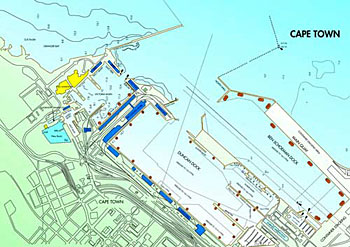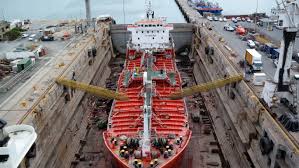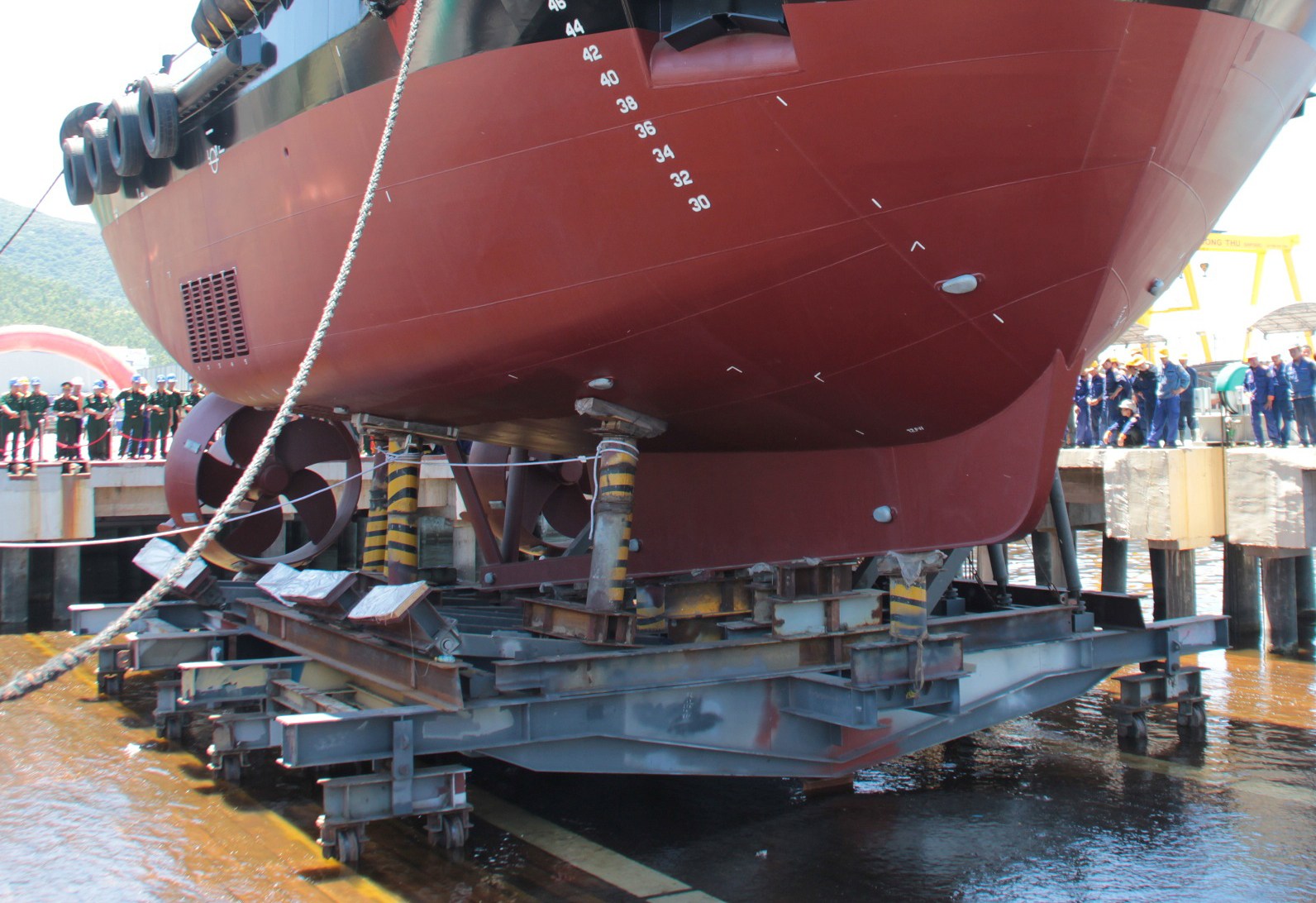Port of Cape Town
Overview
Port Agency Services (PAS) operates in one of the most beautiful harbours in the world, Port of Cape Town, with Table Mountain as its backdrop. PAS proudly offers its services to cater for the needs of its clients and is able to make it up to the customers' expectations as the Port of Cape Town provides with the following facilities:
- Passenger Cuise Ships
- General Cargo
- Robinson Dry Dock
- Synchrolift
- Multipurpose Terminal
- Cold Storage
- Bunkering Points

Source: Transnet, 2010.
Passenger Cruise Ships
The Port of Cape Town is major location for cruise ships travelling all around the world. The port remains available 24 hours a day, seven days a week. The port provides with tight security to ensure that the passengers are safe while some decide to visit the port.
General Cargo
There are 34 berths in the port which also includes layby berths.
The Port of Cape Town is managing a vast amount of containers, catering for genearl cargo and has also become an important part in terms of repairing facilities.
Robinson Dry Dock
The Robinson Dry Dock is situated in the Victoria and Alfred Basin and is one of the oldest operating dry dock in the world.

Source: TNPA, 2015.
It measures 161.2m in length with an entrance top of 20.7m and a depth of 7.9m. It is commonly used for multiple dockings of two or more smaller vessels at the same time.
Syncrolift
The Syncrolift is situated in the Victoria and Alfred Waterfront. The port has the facility of a synchrolift which can handle ships up to 61m in length,15 beam and 1806 tonnes.

Source: Rolls-Royce, 2013.
Multipurpose Terminal (MPT)
It extends alongside the Duncan Dock. It has been chosen as the import and export terminal for a variety of goods such as fertilisers, soya, wheat, maize, cement and containerised cargo. The Cape Town (MPT) deals with more than 20 countries.
Cold Storage
Situated at the Duncan Dock, it has a storage capacity of 2,000 ton at 60°C, 8,000 ton cold store at –30°C and an 80 ton blast freezing capacity, specialised fish processing facilities for value added requirements, docking space for 6 vessels with provision to offload 3 vessels simultaneously. The storage is fully computerised and keep stock records confidential.
Bunkering Points
The Port of Cape Town consists of 61 bunkering points. They supply with marine fuel oil, gas oil and blended fuel at almost all the existing berths. Bunkers are delivered by pipeline and or either by bunker barge but only inside the port, the barge cannot operate at anchorage thus all vessels have to enter the port to replenish bunkers.





